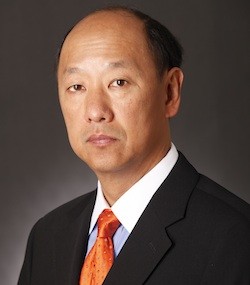
The debate about high-frequency trading is evolving beyond the histrionics of a few months ago to a more balanced and measured debate that could prove constructive for U.S. equity market structure, according to some market participants.
Speaking at the Sandler O’Neill Global Exchange and Brokerage conference in New York, Virtu Financial chief executive Doug Cifu said “we have passed the period of name-calling and spaghetti-throwing. It’s time for an intelligent debate.”
Cifu said Virtu, an electronic market maker, removed itself from the debate at one point following the publication of a provocative book earlier this year, but the firm is “more than happy to be involved in a better debate.”
David Brooks, managing director of global equity trading at The Boston Company Asset Management, said at the Sandler O’Neill conference that it’s a golden age of electronic markets for buy-side traders, as they have more and better tools than ever before in their quest to source liquidity and avoid certain HFT strategies.
“We support industry-led solutions to address structural inefficiencies in the market,” he said. “Intermediation is critical in the market. We would love to have a natural buy-side contra for every trade, but that’s just not reality. The problem is with excess intermediation.”
Trading volume remains soft and the industry should work to minimize any lost volume from investors not being confident in market structure, noted Rich Repetto, principal of Sandler O’Neill.

Rich Repetto, Sandler O’Neill
Brad Katsuyama, CEO of IEX, said the market operator’s goal is to distinguish between market participants who add value to the market and which firms don’t. Many HFT firms have said they can operate under IEX’s rules but only a limited number have done so, he said.
On June 1, Katsuyama said during a podcast: “People unknowingly are systematically disadvantaged in the way that markets are set up. The markets have started to cater very heavily toward [HFTs] and are encouraging a complicated market to go faster. None of this has to do with the why the markets exist in the first place, which is to help companies to raise capital. A lot of people agree that a lot of this nanosecond incremental speed is unnecessary.”
Regarding what needs to be changed in U.S. equity market structure, Cifu said standards for market makers should be reassessed and markets and order types should be consolidated and simplified.
Brooks added that some inducements impair competition and should be removed. These include payment for order flow, maker taker, and certain market data revenues.
The debate around HFT has not gone unnoticed by regulatory authorities. The Investment Industry Regulatory Organization of Canada (IIROC) is currently engaged in a multi-phased research project to assess the impact of HFT and related activity on Canadian equity markets. IIROC expects to have the final phase of the three-part HFT Study completed by the end of 2014.
“We believe it’s important to address identified regulatory concerns relating to HFT using empirical data and objective study to better understand its impact on market integrity and quality, as well as overall investor confidence,” said Susan Wolburgh Jenah, IIROC president and CEO, in a statement.. “This research, combined with IIROC’s ongoing work, will help to inform any further policy making or regulatory interventions.”
IIROC’s HFT Study will complement other initiatives already adopted by IIROC to govern high frequency and algorithmic trading. In particular, in 20I3 IIROC issued guidance on manipulative and deceptive trading. Surveillance alerts have been implemented and IIROC is actively monitoring to detect these rule violations.
Featured image via Madpixblue/Dollar Photo Club






